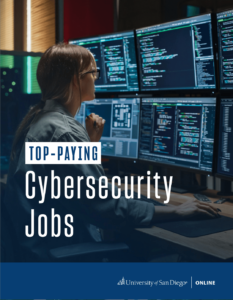Cyber security is one of the most sought after and fastest growing jobs in the tech sector. So if you are working towards a career in cyber security or already work in the field and are looking to advance, you are in a great position as the job openings are numerous. However, to get one of these positions you have to be highly qualified, which in the world of cyber security can mean lots of schooling, multiple certifications and years of experience not to mention the right skills. Here are some tips for job seekers at the entry-level stage and for the mid-to-senior level professional looking to advance his or her career in cyber security.
Entry Level
Most entry-level job seekers spend months searching and networking before finding that first job. Fortunately, for those entering the field of cyber security the opportunities are plentiful. As cyber crime becomes more rampant, the demand for cyber security professionals continues to rise. According to a recent article in Forbes, “There is a global cybersecurity labor epidemic. More than 200,000 U.S. cybersecurity jobs are unfilled. The cybersecurity workforce shortage is expected to reach 1.5 million unfilled positions by 2019.”
So while there is no shortage of jobs in the cyber security field, entry-level candidates will face hurdles due to their lack of experience and education. In the field of cyber security, education and certifications are huge. In fact one of the reasons for the shortage of workers in the field is not that people don’t want the jobs, but that they aren’t qualified.
Challenges
- Lack of practical experience and skills
- Don’t hold the proper certifications or education (many employers look for master degree holders to fill their cyber crime positions)
Advice for Landing that First Job
- Pick an area of focus. Cyber security is a broad field. It is important for entry-level professionals to decide what area of cyber security they want to focus on. This specialization will be appealing to employers who know that nobody, especially at the beginning of their career, can be a jack-of-all-trades. It will also help you set goals, both short term and long term and narrow in on the jobs you are most interested in.
- Never stop learning. While you job hunt, work on obtaining additional certifications and honing your skills. Look at what skills the jobs you are interested in require and work on acquiring those skills so that you can add them to your resume. Make a plan for how you will advance your education. Employers like to hear that a candidate has the ambition and desire to pursue higher education.
- Network. Networking is one of the most important things any job seeker can do. Talk to people you know in the field and reach out to professionals who work in jobs that you would someday like to hold – tell them you are looking for advice and guidance as you enter the field of cyber security and would like to speak with them. Ensure you have created and updated your LinkedIn profile, and use it as a networking tool. Building professional relationships in the field can take time, but it is often one of the most effective ways to finding your first job.
- Participate in hackathons. Companies use places like HackerRank to view potential candidates performance. It can be a great way to get in front of companies and demonstrate your skills.
[RELATED] Which Cyber Security Program is Right For You? Download our free infographic to help decide >>
Mid to Senior Career Level
If you have already begun a career in cyber security and are looking to advance in the field there has never been a better time to do so. Senior cyber security professionals are in high demand as companies search for candidates that have kept up with the changes in cyber security over the last decade. According to Tech Target,
“For many years, the focus has been on perimeter defense and defending the walls of the castle,’ says Eddie Schwartz, the international vice president of ISACA, a nonprofit global association of 140,000 IT and information system professionals, and also chair of ISACA’s Cybersecurity Task Force, and president and COO of WhiteOps. ‘The other skill set is more of a general security skill set that allows organizations to do compliance, healthcare regulations or payment card industry.’
The problem with both of those skill areas, according to Schwartz, is that in the last five to seven years there’s been a dramatic surge in advanced threats and malware; much of it is more sophisticated than reasonable security practices and procedures driven by compliance regimes.
’The emergence of security professionals that can cope with advanced threats and advanced adversaries hasn’t kept up with the changes in cybersecurity,’ he says.”
So what can you do if you find yourself in this predicament or if you have been in the field for a while and feel you are missing certain skills that are required today? Or perhaps you have stayed current on the state of cyber security and would simply like to move up the ladder or move to a better company. No matter the case, there are things you can do to keep your resume fresh and get that next great cyber job.
Challenges
- Have not kept current on the state of cyber security
- Out of date skills
- Lack leadership skills required for advanced positions
Advice for Advancement
- Position yourself as a leader. This is critical if you want to move into a leadership position. Stay abreast of trends in the industry and share them with your boss and team. Offer to present at the next cyber security conference or meeting. Approach your work proactively and ensure you hone the your leadership skills which includes a keen business acumen. Because leadership positions often require deep business knowledge there are degree programs specifically built for cyber security professionals looking to advance their careers and move into leadership positions.
- Acquire necessary certifications and education. If you have been in the field for a while you may be rusty in certain areas. If this is the case, it is critical to get up to speed on the cyber security industry today. This could include gaining certifications, advancing your education through a master’s degree or taking continuing education classes.
- Make sure you are competent in 5 key areas. Hiring managers are typically looking for candidates that are strong in five critical areas: communication, risk management, technical understanding and program management.
- Network. Just like for entry-level job seekers, networking for mid to senior career level job seekers is key. Beyond a professional network, social media, and direct outreach, many people decide to go back to grad school, in part, for the connections and networking opportunities higher education offers.
Overall, the outlook for cyber crime professionals is outstanding. But the catch is that you must be highly skilled and highly educated in order for employers to find you attractive enough to hire or advance. A career in cyber security can be a fulfilling and promising choice for those willing to put in the work and keep their skills relevant.
At the University of San Diego we offer a 100% online Master of Science in Cyber Security Operations and Leadership. To learn more about our nationally accredited program, visit our program page.




